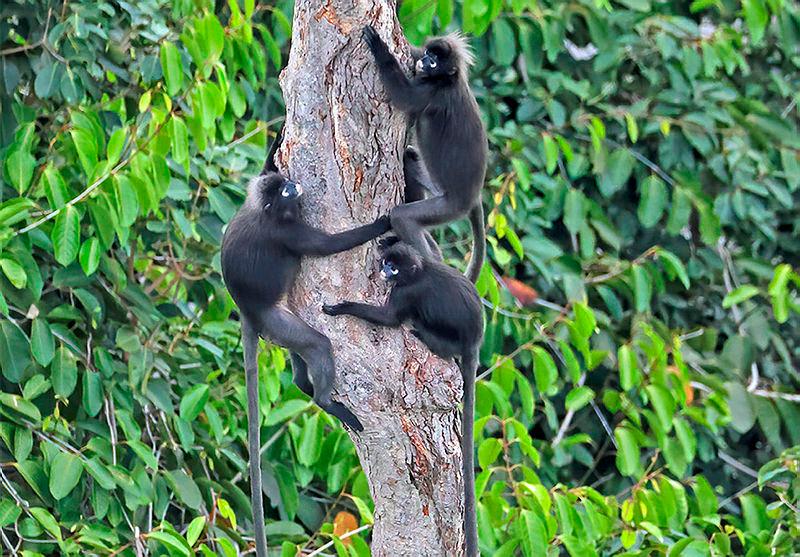KUALA LUMPUR: The Wildlife and National Parks Department recorded 654 cases involving illegal online sale of exotic wildlife between 2020 and 2023 through various social media platforms, said Natural Resources, Environment and Climate Change Minister Nik Nazmi Nik Ahmad.
He was responding yesterday to theSun’s report on Jan 12, which highlighted that wild animals such as slow loris, prairie dogs, crested goshawks, barn owls, sun bears and Bengal cats were being sold online at prices ranging from RM350 to RM4,000 each.
Other wildlife, such as marmosets and dusky leaf monkeys, were sold for between RM800 and RM2,100 each.
“Common methods used by online sellers to trade in wildlife include cash on delivery, using courier services and public transportation. Currently, sales also involve third parties through ‘dropshipping’, where individuals earn commissions on the sale of wildlife without physically handling the animals,” he said.
“Primate species were the most traded, accounting for 215, followed by small mammals and birds.
“The illegal online wildlife trade involves licensed and unlicensed sellers, and illegal hunters, breeders, and syndicates.
“However, the widespread use of social media and strict privacy controls make it challenging to track the perpetrators of the illegal trade in exotic wild animals,” said Nik Nazmi.
He said the department took action in 58 cases of online wildlife sales from 2015 to 2023.
He added that of these, 25 cases have since been resolved, while the remaining are under investigation or prosecution.
Nik Nazmi said one notable case that garnered public attention last year, involved a restaurant patron who uploaded a video featuring the meat of a saltwater crocodile, commonly known as copper crocodile.
“The case was investigated under Section 68 (1)(b) of the Wildlife Conservation Act 2010 [Act 716] for unlawfully possessing parts of a copper crocodile without a special permit.”
Nik Nazmi said in another case, a social media video showed an individual with a collection of Malayan tiger skins at a premises in Kuala Lumpur.
He added that the case was investigated under Section 68 (2)(c) [Act 716] for possession of Malayan Tiger skins without a special permit.
Nik Nazmi said the wildlife department has implemented various measures to address the growing illegal trade in wildlife.
“This includes strengthening legislation through amendments to Act 716 by adding specific provisions, increasing penalties to a maximum of 15 years’ jail and a maximum fine of RM1 million as a deterrent.”
Nik Nazmi added that under the International Trade in Endangered Species Act 2008 (Act 686), the illegal import and export of wildlife without a permit could result in a maximum fine of RM1 million or imprisonment for up to seven years or both for individuals and a maximum fine of RM2 million for corporate bodies.
“To enhance the effectiveness of efforts to combat wildlife crimes, the department also collaborates with enforcement agencies such as police, customs department, immigration, CyberSecurity Malaysia and the Malaysian Communications and Multimedia Commission.
“The ministry urges the public to lodge reports with the department through its hotline at 1-800-88-5151 or through e-complaints on its website at www.wildlife.gov.my.”









